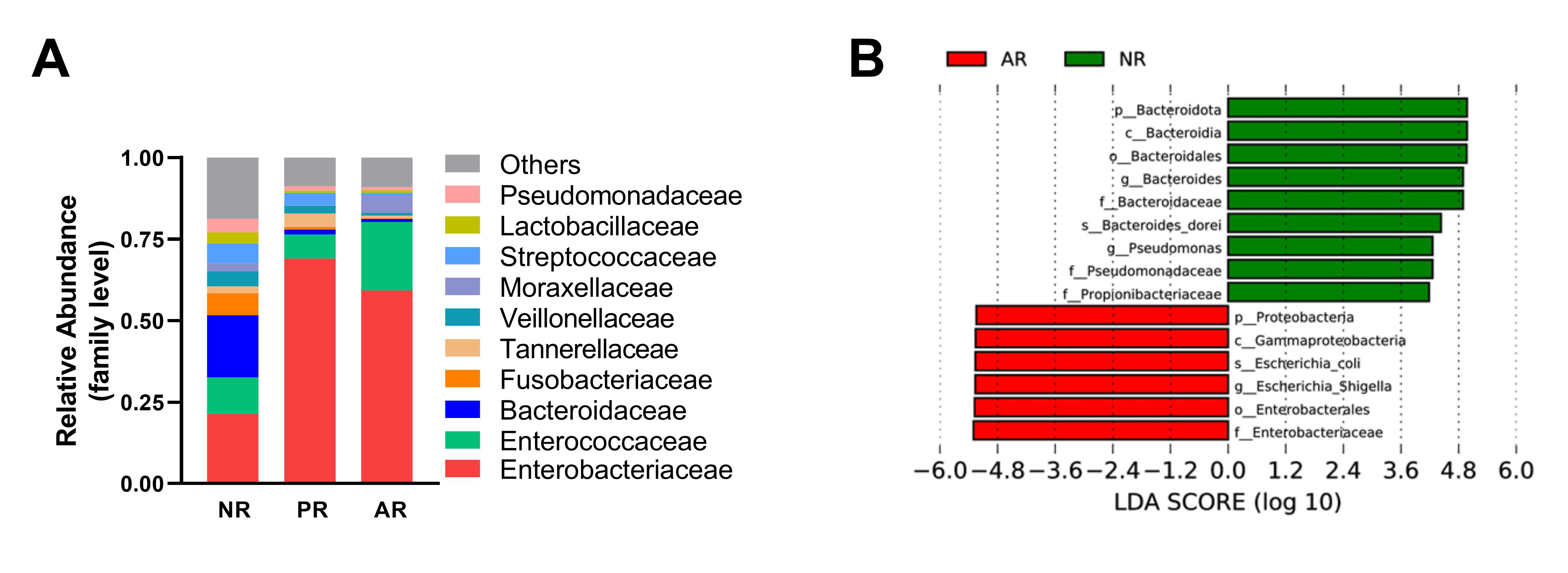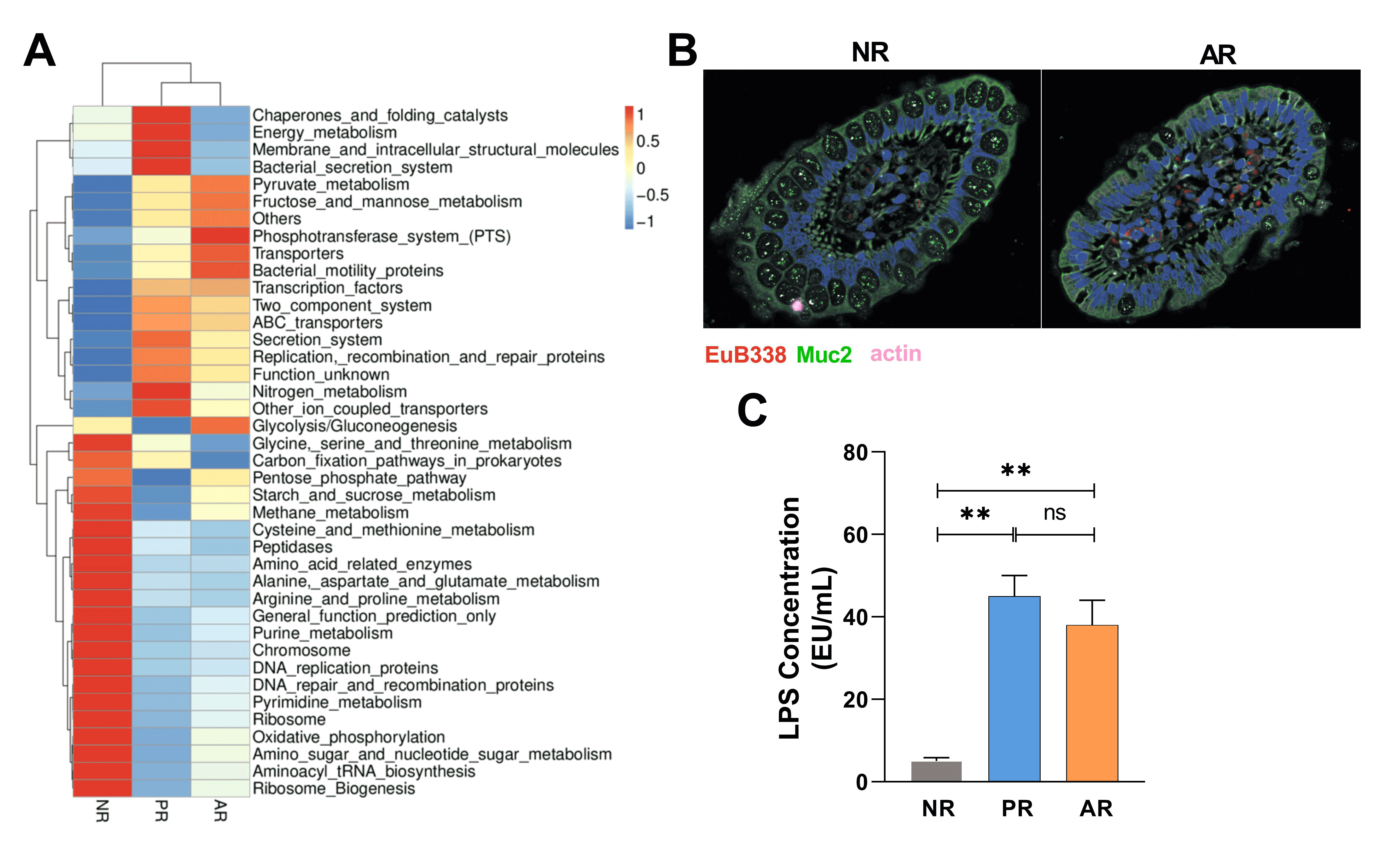Alterations in the ileal effluent microbiota predict acute rejection in intestinal transplant recipients
Wentong Zhang1, Jun Wang1, Chaoxu Liu1, Long Zhao1, Xile Zhou1, Baohong Wang2, Guosheng Wu1.
1Department of Colorectal Surgery and Intestinal Transplant Center, Zhejiang University School of Medicine First Hospital, Hangzhou, People's Republic of China; 2National Clinical Research Center for Infectious Diseases, Zhejiang University School of Medicine First Affiliated Hospital, Hangzhou, People's Republic of China
Introduction: Allograft rejection remains a critical cause of morbidity and graft failure after intestinal transplantation (ITx). Alterations in the gut microbiome may contribute to the development of rejection and be associated with poor clinical outcomes after ITx. This study aimed to characterize the ileal microbial profile of ITx recipients with and without rejection to determine the association of bacterial burden and community composition with subsequent occurrence of acute rejection.
Method: Ileal effluent samples were collected from 16 ITx recipients prior to ostomy closure. The samples were designated as non-rejection (n=8), or active rejection (n=8), based on clinical course, endoscopic examination, and histologic diagnosis. For all the 8 rejection recipients, ostomy samples were also collected within 2 weeks before the rejection episodes (designated as pre-rejection). We used pyrosequencing of 16S ribosomal RNA gene tags to compare the composition of the ileal microbiota during non-rejection, pre-rejection and active rejection states in ITx recipients.
Results: The ileal microbiota of stable ITx recipients without rejection was dominated by Enterobacteriaceae (21.3%), Bacteroidaceae (19.1%), and Enterococcaceae (11.3%). The proportions of Enterobacteriaceae were significantly increased (59.2%, p<0.05) during acute rejection (Figure 1A). We found these alterations (69.0%, p<0.05) occurred prior to rejection episodes. At the species level, Enterobacteria. coli was markedly increased, while those of Bacteroidaceae were significantly decreased during active rejection compared to those of non-rejection recipients (Figure 1B). In addition, our results showed that bacterial secretion systems, and bacterial motility proteins markedly pronounced during active rejection (Figure 2A). Furthermore, the analysis of mucosal tissue from rejection recipients showed an increase in the abundance of mucosa-associated bacteria (Figure 2B). The serum LPS (lipopolysaccharide) levels were significantly elevated in ITx recipients both with active rejection and pre-rejection as compared to non-rejection (Figure 2C), reflecting intestinal barrier loss in this group of patients.


Conclusion: Our results suggest that alterations in the gut microbiomes are associated with small bowel transplant rejection. Analysis of the gut microbiome may serve as non-invasive predictive biomarkers for early detection of rejection.
[1] Intestinal transplantation
[2] Graft rejection
[3] Gut microbiomes
